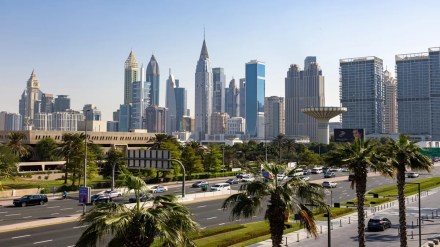By Mahesh Nayak
India’s ultra-wealthy are expanding globally at a rapid pace. With 3-4 new ultra high net worth individuals (UHNIs) emerging daily, Indian family offices are diversifying their investments beyond local borders. They’re allocating capital offshore to achieve regulatory flexibility, reduce volatility, and ensure long-term stability, thereby transforming wealth management into a borderless concept.
From private credit markets to niche business acquisitions, family offices (with a minimum investible surplus of Rs 250-500 crore) are embracing global opportunities. “Offshore investing and the hunt for yield have changed everything,” says Amit Saxena, managing director at Nuvama Private.
“Around 25-35% of Indian family offices with Rs 500 crore of investible surplus are going global,” said the head at a domestic wealth management firm on condition of anonymity. He adds, “This is driven by a strategic pursuit of risk mitigation and legacy planning, rather than mere capital flight. This select group is leading the charge in redefining wealth management.”
GIFT City structures, liberalised remittance scheme (LRS) strategies, and overseas operating bases are becoming foundational. This capital migration is fostering a more mature mindset. Saxena adds, “When your entire portfolio sits in one market and currency, it’s not just concentration, it’s vulnerability. By going offshore, family offices tap into 96% of global GDP, reducing volatility while positioning for generational preservation.”
Ashwin Patni, managing director and head of wealth management solutions at Julius Baer, says, “The last five years have been transformative. Families are no longer just managing money, they’re managing legacy and leadership.” A Julius Baer–EY study highlights this shift, with family offices rising from 45 in 2018 to over 300 in 2024, driven by increasing complexity, global footprints, and the need for structure.
As families monetise operating businesses, they’re recalibrating risk. Up to 60% of capital is now invested in listed equities via portfolio management services (PMS), alternative investment funds (AIFs), and mutual funds, while 10-15% is allocated to private assets like private equity, venture capital, and credit. Notably, 25% of family offices have shifted their focus toward preservation in a high-growth environment.
Gautami Gavankar, president at Kotak Mahindra Bank, emphasises, “With rising complexity and global footprints, institutionalisation, governance, and next-gen alignment have become essential pillars of modern wealth management.” The next generation plays a decisive role, with many educated abroad and fluent in digital capital. They’re steering the conversation toward modernisation and are prepared to lead.
Post-pandemic, families are proactively drafting constitutions, involving fiduciaries, and embracing transparency. Saxena states, “Unlike the first generation, which is still risk-taking, the second generation is cautious and risk-averse but inclined toward offshore investments.”
For many, international diversification isn’t just a financial move; it’s about lifestyle, healthcare, succession and purpose-led growth. Saxena adds, “Overseas direct investment (ODI) isn’t just about outbound capital, it’s about inbound value. Indian entrepreneurs acquiring assets overseas aren’t exiting; they’re importing technology, accessing markets, and future-proofing domestic operations.”
Global mobility is becoming a strategic choice, with residency emerging as a new frontier for aligning personal aspirations with global opportunities. For family offices countries like Spain and Portugal are for serenity, while Dubai or Singapore for structure, and the UK for legacy, are becoming the new frontier for aligning personal aspirations with global opportunity. Technology is aiding this shift, with cross-border structures gaining appeal thanks to GIFT City’s streamlined setup and compliance tools.
As Patni of Julius Baer says, “India’s family offices are evolving from capital hubs into legacy institutions, designed for durability, not just performance.” This new era is redefining what it means to preserve, grow, and globalise Indian capital in a country where generational wealth was often passed down through trust rather than structure.
